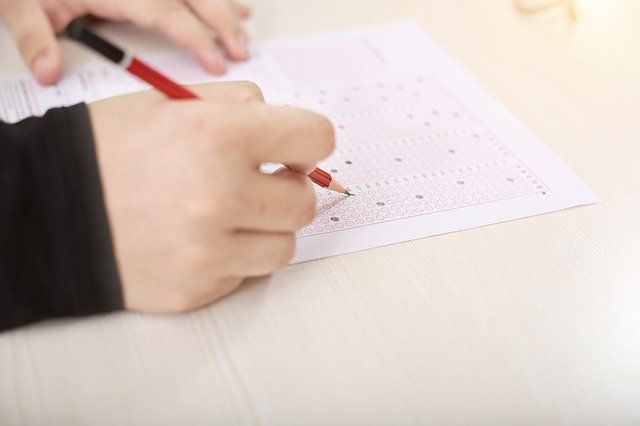Have you been wondering about the necessary qualifications and certifications you require to become a preferred teacher in this competitive world? Well don’t worry, we understand that becoming a “good teacher” in today’s time is difficult and demands multiple qualifications to make you preferred over others and therefore we have listed out a few important Government Examinations for Teachers and their importance. Without further ado, let us take a look at the major government exams for teachers.
Government Exams for Teachers
TEACHER ELIGIBILITY TEST (TET)
TET as widely known, is an annual two-level examination for teachers to certify their eligibility to become a teacher wherein the first level is for Primary School teachers and Second Level is for Secondary School teachers. This exam is conducted centrally as well as under the state government. It is an important government examination. Any individual who secured an aggregate of 50% in the Senior Secondary Examination and is currently pursuing a teacher course is eligible to appear in the exam. After clearing the exam and obtaining its certificate an individual becomes a certified and eligible candidate to become a school teacher of Class I - V and Class VI-VIII.
CENTRAL TEACHER ELIGIBILITY TEST (CTET)
CTET is an examination conducted by the Central Board of Secondary Education (CBSE) to certify aspiring teachers eligible to become teachers in Government Schools. The examination is conducted twice a year to check the candidate’s eligibility to teach Class I - Class VIII respectively. Just like TET, CTET also focuses on bringing out the most of a candidate. It is conducted at the state as well as central government levels. The State Teacher Eligibility is compulsory for all teachers to give and its result is what decides a teacher's qualification and ability to teach. With this exam certification, you can teach in any school in the country irrespective of whether it is a private or government school.
NATIONAL ELIGIBILITY TEST (NET)
NET is organized by the National Testing Agency on behalf of the University Grant Commission (UGC) to certify the eligibility of Indian national citizens who are planning to become Assistant Professor in any university or college of India. The NET examination also qualifies the eligibility for Junior Research Fellowship (JEF) in India. The validity of this exam for JEF is 3 years and for Assistant Professors it is valid for a lifetime.
PRT, TGT, PGT
In India Government jobs are seen with the utmost respect and especially when it's about being a Teacher in Government Schools. The TGT/PGT is a recruitment examination conducted by the Central Board of Senior Secondary Education to recruit teachers at various levels of teaching as per their merit and qualification. There are 3 levels of teaching. PRT deals with the selection of Primary Teachers who teach elementary classes i.e, from I-V. TGT abbreviation of Trained Graduate Teachers has to do with the selection of teachers for teaching elementary as well as secondary classes, i.e. up to class 10th. The last level is PGT, Post Graduate Teacher. This qualification grants eligibility to a candidate to teach Senior Secondary Classes, i.e. up to 12th standard.
SLET OR SETs
The State Level Eligibility Test or the State Eligibility Test is an examination for teachers that is organized at State or University level, conducted in English. This certifies an individual to become a lecturer in the state that certification was obtained or the regions that are affiliated to the parent state. This test is only for Indian Nationals and the minimum qualification requirement for appearing in the test is a Master's degree with an aggregate of 55% for the general category and 45% for others.
CSIR UGC NET
Council Of Scientific and Industrial Research in collaboration with the University Grant Commission created a certification for determining the eligibility of Indian National Candidates for Junior Research fellowship award. This also certifies an individual to apply for a Lecturer post in the subjects belonging to the faculty of science and science and technology. The merit list created from the result of this examination qualifies the candidate for placement in universities as per their grading.
B.ED
Bachelor in Education is a diploma course that certifies an individual to apply for the job of a teacher. Interested candidates can appear in B.Ed. examinations after they complete their graduation or master's in any subject with a minimum of 55%. This course enables an individual to call themselves a certified teacher further granting them the opportunity to apply for teaching jobs in their respective fields at the school level. Though this does not strictly fall under the category of government examination for teachers, it can be classified as one.
M.Ed.
Master's in Education is a centrally recognized certification that one can pursue after their Master's in any subject or after completion of their B.Ed. with a minimum of 55%. This certification enables an individual to apply for teaching jobs at school as well as university level in their respective field.
All the government exams for teachers are put in place to ensure that the teachers are able and qualified enough to teach the students effectively and efficiently. A teacher plays an imperative role in shaping the future generation and it is pivotal to make sure that they get ample enough training and guidance to do the same. These government exams check their quality and eligibility.
With Teachmint Integrated School Platform, schools can easily automate almost all the strenuous tasks that otherwise were laborious and time-taking. The LMS portal, performance management, attendance management system, and other valuable features make Teachmint one of the best solutions for educational institutions.






